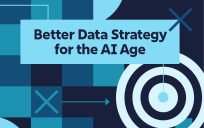As artificial intelligence continues to evolve, federal agencies face an urgent need to prepare for its widespread adoption. Gartner predicts that more than 70% of government agencies will use AI to enhance human administrative decision making by 2026, and that machine learning, analytics and generative AI will mature over the next two years, ultimately combining into a suite of tools that support better government service delivery.

To prepare for AI technology, federal agencies need to assure their networks and infrastructure are ready for AI adoption. They need to consider the skill level of their employees, and ultimately, the outcomes the expect from AI technology.
How Should Federal Agencies Plan for AI Technology?
To fully harness the power of AI, federal agencies should create a clear AI roadmap outlining their goals, timelines, and key milestones. This roadmap should be flexible, allowing for adjustments as new technologies emerge and federal priorities shift. Below is a proposed three-year plan for AI adoption that can guide agencies through this transformative process.
Year 1
- Establish AI governance frameworks and ethical guidelines, ensuring alignment with federal mandates like the AI in Government Act.
- Create an AI Center of Excellence (CoE) within each agency to drive AI initiatives, ensuring a centralized approach to strategy and implementation.
- Implement robust data management practices, focusing on data quality, accessibility and security.
- Begin data integration efforts, consolidating siloed data sources to support AI readiness.
- Launch training programs to upskill the workforce in AI-related competencies, focusing on both technical and ethical aspects.
In the first year of a three-year AI adoption plan, federal agencies should focus on expanding capabilities by establishing a scalable AI infrastructure. This includes investing in cloud-based platforms that can support large-scale AI initiatives, ensuring the infrastructure can grow with the agency’s needs. Additionally, exploring edge AI solutions will be vital for enhancing data processing at the source which will improve real-time decision-making and enable more efficient operations across departments.
Simultaneously, the ethical and responsible implementation of AI must be prioritized. Agencies should establish AI ethics boards to oversee all AI projects, ensuring that these projects comply with ethical standards and address potential biases. Agencies will need to consider AI fairness and transparency tools, such as explainable AI.
These initiatives should lay the foundation for successful pilot projects from an initial phase into a broader implementation. Early AI projects should focus on areas such as intelligent automation, AI-driven cybersecurity, and enhanced citizen services. It is also important to note that collaboration with industry leaders, academic institutions, and other federal agencies will further strengthen these efforts, fostering innovation and the sharing best practices.
Year 2
Federal agencies should focus on widespread AI-driven innovation including integrating AI into critical government functions. Federal agency strategies should emphasize AI technology that improves public services, such as personalized citizen engagement and back-end intelligent automation.
Adopt AI tools that support the workforce with AI-driven tools, such as virtual assistants for administrative tasks and advanced analytics for decision-making.
Agencies should also plan to expand AI deployments across all departments, with a focus on automation, enhanced data analytics, and decision-making support. This will be important for continuous AI model training and updates to adapt to evolving data and challenges.
Year 3
Establish comprehensive metrics to measure the impact of AI across the agency, focus on efficiency gains, cost savings, and improved citizen outcomes. These insights can be used to optimize AI strategies and drive further improvements.
Enhance interoperability between AI systems across the agency. This integration should extend to advanced technologies such as blockchain for secure data transactions and IoT for real-time monitoring, creating a robust and interconnected AI ecosystem.
Marcel Shaw is a seasoned technology blogger at marcelshaw.com. With over 30 years of experience as a technical consultant for top IT companies, he has extensive experience with U.S. government agencies. Marcel has provided legal expert witness services in addition to his roles as a consultant at Novell, Dell, Ivanti, ServiceNow and others. His expertise covers network/IP infrastructure, security and compliance, cloud, document management, AI, and IT Service Management. A Brigham Young University graduate, Marcel offers valuable technology insights and best practices for IT professionals.





Leave a Reply
You must be logged in to post a comment.